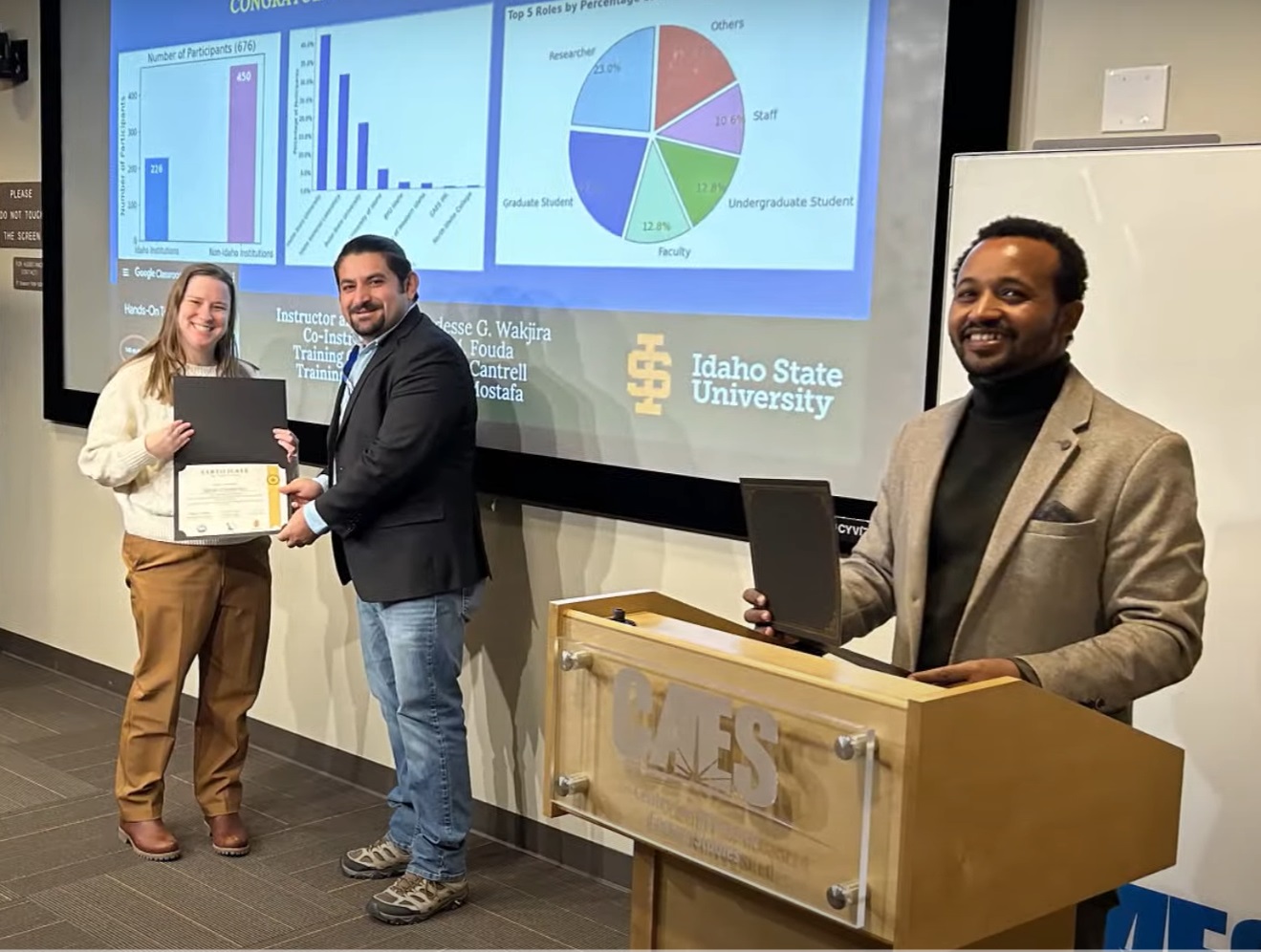
This work is part of Idaho’s NSF EPSCoR RII Track-1 award, Idaho Community-engaged Resilience for Energy-Water Systems (I-CREWS), that aims to address the impact of climate, population, and technological change on energy-water (E-W) systems. I-CREWS awarded Seed Funding projects as part of the effort to invest in new opportunities as well as pursue high impact, potentially transformative research and educational projects. The term Energy-water (E-W) Systems refers to the intersection between the systems, consisting of the physical infrastructure, data/information/knowledge, the people, laws and policy, as well as the fuel and water that flows or is in reserve. The training team was led by Tadesse Gemeda Wakjira, Center for Advanced Energy Studies (CAES) Researcher in ISU’s Department of Civil and Environmental Engineering. Other members of the team included Co-Investigators Mostafa Fouda, Associate Professor, and Jared Cantrell, Lab Manager and Research Engineer, from ISU’s Department of Electrical and Computer Engineering.
AI applications often emphasize theoretical model development but lack the practical applications of these models. This deficiency hinders the practical implementation of AI solutions in real-world scenarios. The training helps bridge the gap between theoretical models and real-world applications by developing and deploying AI frameworks into practical tools.
A team from Idaho State University is providing expertise in applied artificial intelligence (AI) and machine learning (ML) to optimize resilience and sustainability in energy and water systems. The new Applied AI/ML (HoT-AML) program is tailored to provide engineers with specialized skills in AI/ML and its applications.
